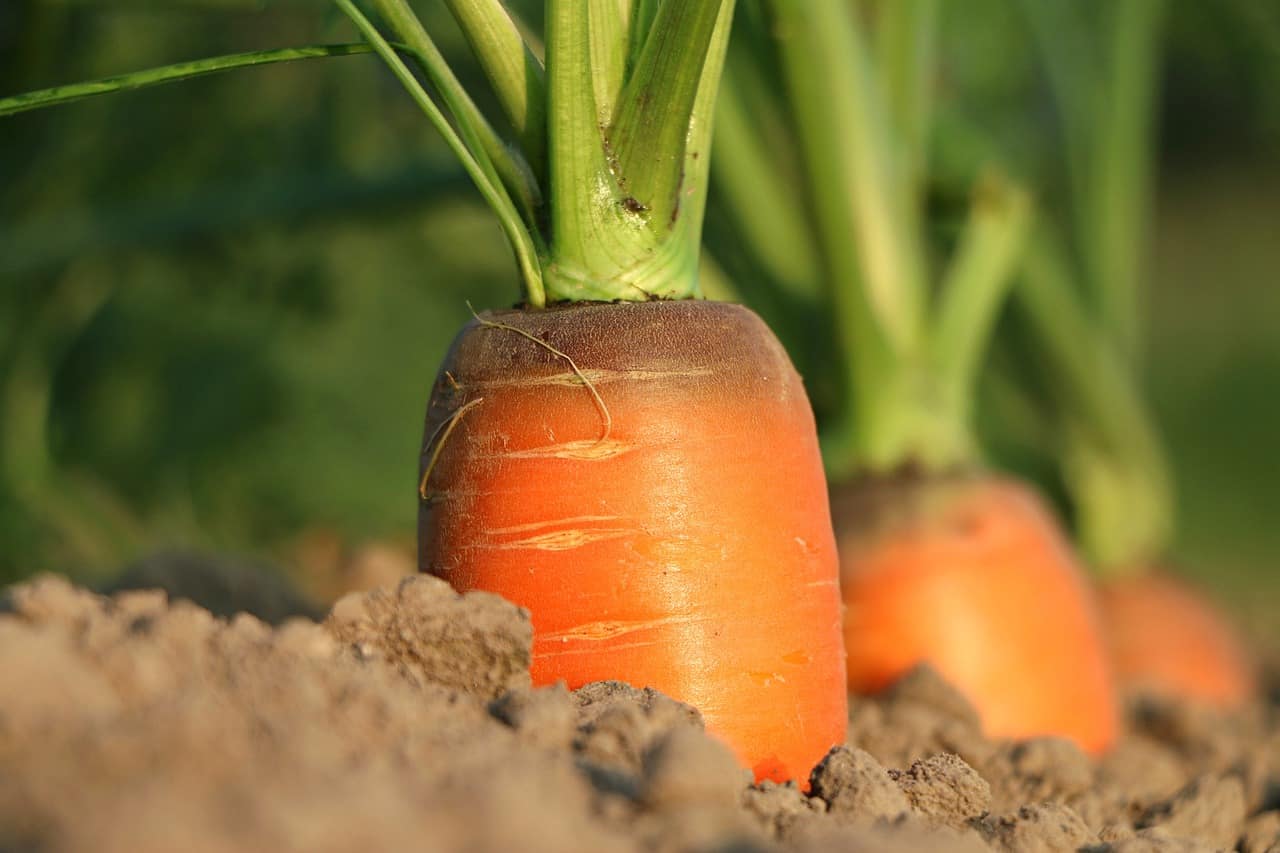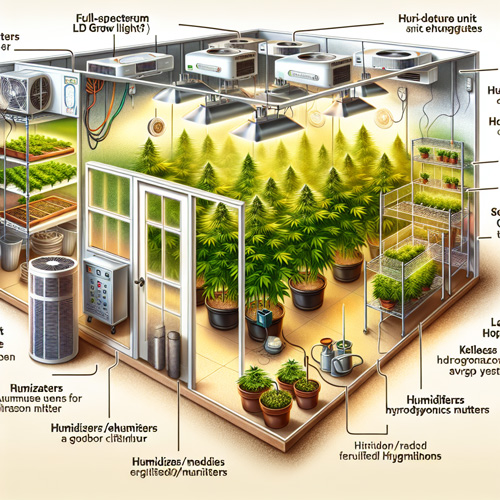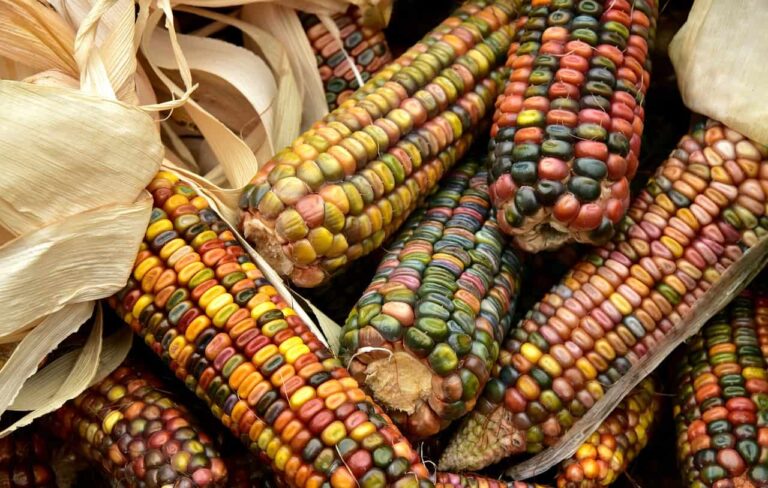
Sustainability in Agriculture
Sustainability in agriculture refers to the practice of using natural resources in a way that ensures the long-term viability of the agricultural sector while minimizing the negative impact on the environment.
It involves adopting sustainable practices that promote soil health, water quality, and environmental quality, while also protecting natural ecosystems and biodiversity. Sustainable agriculture aims to meet the needs of the present generation without compromising the ability of future generations to meet their own needs.
By implementing sustainable farming practices, such as organic farming and sustainable farming practices, farmers can improve soil fertility, reduce the use of synthetic inputs and pesticides, and maintain the health of their crops and livestock.
Sustainable agriculture also takes into consideration the welfare of rural communities and the overall quality of life for farmers, ensuring a sustainable future for both the agricultural sector and the environment. It recognizes the interconnectedness of ecological, social, and economic systems, and seeks to address the adverse effects of conventional farming practices on human health and the environment.
Sustainability in agriculture encompasses a broad range of practices and policies that aim to create a more environmentally sustainable and socially equitable food system. It involves promoting ecological processes, conserving natural habitats, and managing pest populations in a sustainable manner. Through sustainable agricultural practices, we can not only ensure the production of healthy food but also protect natural resources, enhance ecosystem services, and foster a sustainable future for all.
Benefits of Sustainable Agriculture
Sustainable agriculture offers a range of benefits that contribute to the preservation of critical habitats, improved soil health, water quality, and the overall well-being of human societies and biodiversity. By adopting sustainable farming practices, farmers can ensure the sustainable stewardship of land, air, and water resources.
Preserving habitats is one of the key benefits of sustainable agriculture. By implementing practices that conserve natural ecosystems and protect biodiversity, sustainable agriculture helps maintain critical habitats for various plant and animal species. This conservation enhances the resilience and stability of ecosystems, ensuring their long-term survival and the protection of endangered species.
Another significant benefit of sustainable agriculture is the improvement of soil health. Sustainable farming practices, such as crop rotation, cover cropping, and organic fertilization, enhance soil fertility and structure. This leads to increased nutrient availability, improved water-holding capacity, and reduced soil erosion, ultimately promoting healthier and more productive agricultural land.
Sustainable agriculture also plays a crucial role in improving water quality. By minimizing the use of synthetic chemical inputs and adopting water conservation practices, such as precision irrigation techniques and buffer zones, farmers help minimize water pollution from runoff and reduce the contamination of water bodies. This ensures a cleaner and safer water supply for communities and ecosystems.
Moreover, sustainable agriculture contributes to food security by meeting present and future generations’ food, feed, and fiber needs. By implementing sustainable farming practices, farmers can enhance crop productivity while minimizing the negative impact on the environment. This enables the production of a diverse range of nutritious food, ensuring access to healthy and sustainable food systems for all.
Sustainable agriculture offers numerous benefits, including the preservation of critical habitats, improved soil health, enhanced water quality, and the provision of sustainable food systems. By adopting sustainable farming practices, we can meet the needs of the present generation while ensuring the sustainable stewardship of our natural resources for future generations.
Natural Resources and Sustainable Practices
Natural Resources and Sustainable Practices are integral components of sustainable agriculture. The conservation and responsible management of natural resources, such as land, water, and air, are essential for the long-term sustainability of agricultural systems.
By adopting sustainable practices, farmers can ensure the efficient use of resources, minimize environmental degradation, and promote the overall well-being of ecosystems and human communities. These practices focus on enhancing soil health, water quality, and biodiversity conservation, while also aiming to meet the present and future food needs of the growing population.
We will explore the importance of natural resources in sustainable agriculture and delve into the various sustainable practices that farmers can adopt to ensure the long-term viability and environmental integrity of agricultural production.
Types of Natural Resources Used in Agriculture
Natural resources play a vital role in sustainable farming practices. Agriculture relies on various natural resources that are essential for crop production and overall environmental health. Some common types of natural resources used in agriculture include land, water, air, and biodiversity.
Land is a crucial natural resource for agriculture as it provides the physical space for growing crops and raising livestock. Maintaining soil health is essential to sustain agricultural activities. Soil fertility, which is an important aspect of sustainable farming, relies on natural processes and organic matter. It is necessary to adopt practices that promote soil health and prevent soil degradation.
Water is another critical natural resource used in agriculture. It is required for crop irrigation, livestock watering, and processing activities. Proper water management is crucial to ensure sustainable agriculture practices and prevent water scarcity or pollution.
Air quality is significant for crop development and overall environmental health. Agricultural practices, such as the use of pesticides and fertilizers, can have adverse effects on air quality if not managed properly. Implementing sustainable farming practices that minimize air pollution is essential for the well-being of both the environment and human communities.
Biodiversity is essential for sustainable agriculture as it provides various ecosystem services such as pollination, pest control, and nutrient cycling. Protecting natural habitats and promoting biodiversity conservation practices are crucial for maintaining a healthy ecosystem and sustainable future in agriculture.
Safeguarding these natural resources is of utmost importance to ensure the long-term viability of the agricultural sector. By adopting sustainable farming practices that minimize environmental degradation and promote resource conservation, we can create a sustainable and resilient agricultural system for future generations.
Sustainable Practices for Protecting Natural Resources
Sustainable agriculture practices play a crucial role in protecting and conserving natural resources while ensuring long-term environmental sustainability. By adopting these practices, farmers can prevent resource depletion, maintain ecological balance, and promote responsible management of soil, water, and air.
One of the key sustainable practices is soil conservation. This involves techniques like crop rotation, cover cropping, and conservation tillage that help maintain soil health, prevent erosion, and improve soil fertility. These practices promote the recycling of nutrients, reduce the need for synthetic fertilizers, and enhance soil organic matter.
Water conservation is another critical aspect of sustainable agriculture. Efficient irrigation systems, such as drip irrigation or precision sprinklers, can significantly reduce water usage. Additionally, implementing methods like rainwater harvesting and water recycling can help conserve water resources while ensuring proper irrigation for crops.
Responsible management of air quality is essential for both the environment and human health. Practices like integrated pest management (IPM), which emphasizes the use of natural pest control methods, can reduce the reliance on chemical pesticides and minimize air pollution. Moreover, efficient use of fertilizers and proper waste management can also contribute to improving air quality.
Implementing sustainable practices in agriculture is crucial for protecting natural resources, preventing resource depletion, and promoting environmental sustainability. By adopting soil conservation, water conservation, and responsible air management practices, farmers can play a significant role in ensuring a sustainable future for agriculture.
Soil Health and Fertility
The health and fertility of soil are vital for sustainable agriculture practices. By maintaining healthy and fertile soil, farmers can improve crop production, reduce the need for synthetic fertilizers, and enhance the overall sustainability of their farming operations.
Practices such as crop rotation, cover cropping, and conservation tillage play a crucial role in preserving soil health. Crop rotation involves alternating the types of crops grown in a particular field, which helps prevent the depletion of specific nutrients and reduces the risk of pest and disease outbreaks. Cover cropping involves planting specific crops to cover the soil between cash crops, providing additional organic matter and protecting against erosion.
Conservation tillage techniques minimize soil disturbance, helping to retain moisture and organic matter. These sustainable practices not only promote soil fertility but also contribute to the long-term health of the natural resource base, ensuring a sustainable future for agriculture.
Factors Affecting Soil Fertility
Soil fertility, a crucial aspect of sustainable agriculture, is influenced by several factors. Agricultural practices play a significant role in determining soil fertility levels. The use of sustainable practices, such as organic farming, can help maintain or improve soil health. These practices promote the incorporation of organic matter into the soil, enhancing its fertility and overall quality. Organic matter contributes to the formation of nutrient-rich soils, which can support healthy crop growth.
Another factor that affects soil fertility is nutrient management. Proper management of nutrients is essential to ensure that crops receive adequate levels of essential elements for optimal growth. This involves understanding the nutrient requirements of different crops and applying appropriate fertilizers or soil amendments. Overuse or misuse of fertilizers can lead to nutrient imbalances and can have adverse effects on the environment and crop productivity.
It is important to consider these factors when aiming for sustainable agriculture and maintaining soil fertility. By adopting sustainable farming practices, such as incorporating organic matter and implementing effective nutrient management strategies, farmers can contribute to the long-term health of their soil and promote the sustainability of agricultural systems.
This, in turn, can lead to improved crop production, environmental quality, and overall well-being for both farming communities and the broader ecosystem.
Strategies for Maintaining Soil Health and Fertility
Maintaining soil health and fertility is crucial for sustainable agriculture. Several strategies can be implemented to achieve this goal.
Firstly, cover crops play a vital role in preserving soil health. Cover crops, such as legumes or grasses, are grown between cash crops to cover the soil surface. They help prevent soil erosion by protecting the soil from wind and water erosion. Additionally, cover crops reduce soil water evaporation by providing a shield against direct sunlight and acting as a physical barrier to water loss.
Reduced tillage is another practice that contributes to soil health. By minimizing the frequency and intensity of tillage operations, this practice helps to conserve soil structure and organic matter. Reduced tillage reduces soil erosion by leaving crop residues on the soil surface, acting as natural mulch.
Crop rotation is also a crucial strategy. It involves alternating different crops in a specific sequence over time. Crop rotation disrupts pest and disease cycles, reduces nutrient imbalances, and improves soil structure and health. Different crops have varying nutrient requirements, and rotating crops helps prevent nutrient depletion and allows for more efficient nutrient uptake.
Furthermore, organic matter additions are essential for maintaining soil fertility. Application of organic matter, such as compost or manure, enhances soil structure, provides essential nutrients, and improves microbial activity. Organic matter additions also increase the soil’s capacity to retain water, reducing the need for irrigation.
Lastly, management-intensive grazing is a strategy where livestock are intensively managed and rotated on pasture. This practice optimizes nutrient cycling and organic matter deposition, promoting soil fertility. The grazing animals also trample plant residues, increasing organic matter input to the soil.
By implementing these strategies, farmers can reduce soil water evaporation, prevent soil erosion, and improve phosphorus uptake. These practices contribute to sustainable agriculture by maintaining and enhancing soil health and fertility, ensuring the long-term viability of agricultural systems.
Quality of Life in Rural Communities
In the broadest sense, sustainable agriculture practices not only focus on preserving natural resources and soil health but also aim to improve the quality of life in rural communities. By implementing sustainable farming practices, the agricultural sector can contribute to the overall well-being and prosperity of rural areas.
Sustainable agriculture emphasizes the importance of supporting local economies, promoting social equity, and fostering vibrant communities. This includes creating opportunities for farmers and their families to thrive economically, preserving cultural heritage, and enhancing the overall quality of life in rural areas.
Sustainable farming practices also prioritize the health and safety of farmers and their communities, ensuring access to safe and nutritious food, and minimizing the adverse effects of agricultural activities on the environment and human health.
By embracing sustainability in agriculture, rural communities can enjoy a sustainable future that balances economic prosperity, environmental stewardship, and social well-being.
Challenges Faced by Rural Communities Related to Agriculture
Rural communities face a multitude of challenges related to agriculture. One of the key challenges is the impact of agricultural practices on nature and society. Unsustainable farming practices can lead to environmental degradation, such as soil erosion and water pollution, affecting both the quality of life in rural areas and the natural resource base on which agriculture depends.
Food loss and waste is another significant challenge faced by rural communities. A considerable portion of food produced is lost or wasted, contributing to greenhouse gas emissions and exacerbating food insecurity. This issue is particularly critical in rural areas where access to markets and proper storage facilities may be limited.
Dietary shifts are necessary to address the challenges faced by rural communities. Promoting more sustainable and healthier food choices can have positive impacts on both the environment and human health. Encouraging the consumption of locally grown foods can reduce transportation emissions and support local farmers, while also improving the nutritional qualities of diets.
Land use considerations are also essential for the sustainability of rural communities. Balancing agricultural production with the preservation of natural ecosystems and habitats is crucial for maintaining biodiversity and ecological processes that are fundamental to the health of rural areas.
Addressing these challenges requires the adoption of sustainable agricultural practices and the implementation of supportive policies. By promoting agricultural sustainability, rural communities can thrive while also safeguarding the environment and ensuring a sustainable future for agricultural sector and society at large.
Ways to Improve Quality of Life in Rural Communities Through Sustainable Farming Practices
Sustainable farming practices hold immense potential to improve the quality of life in rural communities. By implementing these practices, farmers can preserve natural resources, enhance soil health, and promote environmental and human health, leading to a more sustainable and thriving community.
One example of a sustainable farming practice is organic farming. By avoiding the use of synthetic pesticides and fertilizers, organic farmers protect the soil fertility and water quality. This not only benefits the environment but also contributes to the production of healthier food that is free from harmful residues. Additionally, organic farming promotes biodiversity by providing a natural habitat for beneficial insects and wildlife.
Another sustainable practice is agroforestry, which involves integrating trees and crops on the same land. This practice enhances soil fertility, conserves water resources, and mitigates climate change by sequestering carbon dioxide. Agroforestry also provides additional income opportunities for farmers through the cultivation of fruits, nuts, and timber.
Using cover crops is yet another sustainable practice that helps improve rural communities’ quality of life. Cover crops, such as legumes or grasses, are planted after a cash crop to protect the soil from erosion, increase organic matter content, and suppress weed growth. These cover crops enhance soil health, reduce the need for synthetic inputs, and provide additional forage for livestock.
By adopting sustainable farming practices like organic farming, agroforestry, and using cover crops, rural communities can realize numerous benefits. These include increased agricultural productivity, improved water and soil quality, enhanced biodiversity, and diversified income streams.
Ultimately, these practices contribute to a sustainable and prosperous future for rural communities, ensuring a higher quality of life for both farmers and residents.
Organic Farming and Healthy Food Production
Organic farming is a sustainable farming practice that prioritizes the use of natural resources and the protection of soil health. By avoiding synthetic pesticides and fertilizers, organic farmers contribute to the production of healthy food that is free from harmful residues.
This method not only benefits the environment but also ensures that the nutritional qualities of the food are maintained. Organic farming promotes biodiversity by providing a natural habitat for beneficial insects and wildlife, further enhancing the ecological balance of agricultural systems.
Overall, organic farming practices are crucial for sustainable food production, as they prioritize the health of both the consumers and the environment.
Characteristics of Organic Farming Systems
Organic farming systems are characterized by their commitment to sustainable practices that prioritize the health of the soil, water, and biodiversity. These systems aim to emulate nature and work in harmony with ecological processes to ensure long-term soil fertility and environmental health.
One of the key features of organic farming is the avoidance of synthetic fertilizers and pesticides. Instead, organic farmers rely on natural resources and practices to enhance soil fertility and manage pests and diseases. They utilize techniques such as crop rotations, green manure, and composting to maintain the nutrient balance of the soil and promote beneficial microorganisms.
By avoiding the use of synthetic chemicals, organic farming systems effectively prevent water pollution. The absence of chemical runoff protects water resources and preserves water quality, ensuring a safe and sustainable supply for both agricultural and human communities.
Organic farming also prioritizes biodiversity conservation. By promoting natural habitat and ecological diversity, organic farms support a wide range of beneficial organisms such as pollinators and natural predators. This leads to a reduction in pest populations and the need for chemical pest management, reducing the adverse effects on the environment and promoting a healthier balance within the ecosystem.
In addition to its environmental benefits, organic farming contributes to global objectives such as the Sustainable Development Goals Zero Hunger. By ensuring healthy soil and sustainable food systems, organic farming supports the production of nutritious and safe food for human consumption. Furthermore, organic practices typically involve lower energy consumption and greenhouse gas emissions compared to conventional farming, contributing to the mitigation of climate change.
Incorporating organic farming practices is crucial to creating a more sustainable and environmentally friendly agricultural sector. By prioritizing soil fertility, preventing water pollution, and protecting biodiversity, organic farming systems offer a viable and effective approach to achieving agricultural sustainability in the face of environmental degradation.
Nutritional Qualities of Healthy Food Produced Through Organic Farming Practices
Organic farming practices play a crucial role in producing healthy food with exceptional nutritional qualities. One of the key aspects contributing to the nutritional value of organic food is the absence of synthetic chemicals and pesticides. Unlike conventional farming, organic farmers avoid the use of these harmful substances, ensuring that the food produced is free from chemical residues.
By relying on natural resources and practices, organic farming promotes the preservation of soil nutrients. Instead of relying on synthetic fertilizers, organic farmers focus on enhancing soil fertility through techniques like crop rotations and composting. This helps to maintain the natural balance of nutrients in the soil, which in turn translates to healthier and more nutrient-rich crops.
Furthermore, organic farming practices prioritize the preservation of beneficial microorganisms in the soil. These microorganisms play a vital role in breaking down nutrients and making them more accessible to plants. By preserving the natural soil microbiota, organic farming supports the production of food with enhanced nutrient content.
Organic farming practices enhance the nutritional qualities of food by avoiding the use of synthetic chemicals and pesticides, and by preserving soil nutrients and beneficial microorganisms. By choosing organic food, consumers can enjoy the reassurance that they are consuming food that is not only free from harmful residues but also packed with essential nutrients for a healthier diet.
Water Quality and Conservation Strategies
Water quality and conservation strategies play a crucial role in sustainable agriculture. Excessive water consumption and degraded water quality have significant adverse effects on the agricultural sector. Overconsumption of water can deplete water resources, leading to water scarcity in rural communities and negatively impacting the environment.
Moreover, degraded water quality can harm aquatic ecosystems, affecting both the natural habitats and the quality of water resources. This contamination can result from agricultural runoff carrying excess nutrients, pesticides, and sediment into water bodies.
To address these challenges, creative conservation measures are essential. Sustainable farming practices, such as precision irrigation techniques and the use of cover crops, can significantly reduce water consumption. Efficient irrigation systems and proper management of fertilizers and pesticides can also help prevent water contamination.
Additionally, farmers can promote water quality and conservation by implementing riparian buffer zones along streams and rivers, which act as natural filters, reducing sediment and nutrient runoff. These strategies not only protect water resources but also contribute to greenhouse gas reduction, as excessive water consumption and degraded water quality contribute to increased greenhouse gas emissions and climate change.
Incorporating water quality and conservation strategies in agriculture is vital for a sustainable future. By reducing water consumption, preventing water pollution, and implementing sustainable farming practices, we can contribute to the preservation of water resources, protect aquatic ecosystems, and mitigate the adverse impacts of agriculture on climate change.
Fulvic and Humic Content In Sustainable Agriculture
Fulvic and humic content play a crucial role in sustainable agriculture by contributing to soil health and fertility. These substances, derived from decomposed organic matter, greatly enhance the nutrient availability in the soil.
Fulvic and humic content acts as a chelating agent, binding essential nutrients and making them more accessible for plant uptake. By doing so, they improve the efficiency of nutrient absorption and reduce the loss of nutrients through leaching. This is especially beneficial in organic farming practices where synthetic fertilizers are not used.
Furthermore, these substances enhance water retention in the soil. They have the ability to hold water and prevent it from being lost through evaporation or draining. This helps to maintain moisture levels in the soil, reducing the need for excessive irrigation and conserving water resources.
Fulvic and humic content also promote beneficial microbial activity in the soil. They provide a favorable environment for the growth of beneficial microbes, including bacteria and fungi, which play a vital role in nutrient cycling and plant growth promotion. These microbes break down organic matter into simpler forms, releasing nutrients for plant uptake and improving soil structure.
Natural sources of fulvic and humic content include decomposed organic matter, such as compost, manure, and leaf litter. These organic materials can be incorporated into the soil to increase its fulvic and humic content, thereby enhancing soil fertility and overall agricultural sustainability.
The presence of fulvic and humic content in sustainable agriculture significantly contributes to soil health and fertility. They improve nutrient availability, enhance water retention, and promote beneficial microbial activity in the soil. Utilizing natural sources of these substances, such as decomposed organic matter, ensures a sustainable and environmentally-friendly approach to agriculture.
Conclusion
In conclusion, sustainable agriculture is a complex and multifaceted concept that requires the integration of different conceptions and perspectives. It cannot be defined by a single set of criteria or practices, as diverse interpretations are necessary to address the varying needs and contexts of agricultural systems.
The integration of techno-economic and agroecological-ruralist approaches is crucial for achieving sustainability in agriculture. Techno-economic approaches focus on the efficient use of resources and maximizing yields, while agroecological-ruralist approaches emphasize the importance of ecological processes, social equity, and the well-being of rural communities.
Combining these approaches allows for a comprehensive understanding and implementation of sustainable agricultural practices.
It is important to recognize that there is no one-size-fits-all solution to sustainable agriculture. Different regions and communities require tailored approaches that take into account their specific social, economic, and environmental contexts. By embracing diverse interpretations of sustainability, we can promote inclusivity and ensure that the needs and values of all stakeholders are considered.
In moving forward, it is essential to continue researching and implementing innovative strategies that bridge the gaps between techno-economic and agroecological-ruralist approaches. This includes fostering dialogue and collaboration among scientists, policymakers, farmers, and other stakeholders to develop holistic and context-specific solutions.
Only through the integration of diverse perspectives and approaches can we achieve a truly sustainable future for agriculture and ensure the long-term well-being of both human communities and natural ecosystems.



































/5Total reviews
Persons recommended this product
Filter by
star Rating
attach_file Attachments
Anonymous
Shopper
check_circle Verified
Shop owner replied
Was this helpful
Facebook
X (Twitter)
LinkedIn
Reddit
Copied to Clipboard
Anonymous
Shopper
check_circle Verified
Shop owner replied
Was this helpful
Facebook
X (Twitter)
LinkedIn
Reddit
Copy Link
Thanks for your review!
Your feedback helps us improve our service.
There are no reviews yet.
Be the first to review “ ”
Only logged in customers who have purchased this product may leave a review